Lugu Lake Travel Guide
Since it is located on the border between Yunnan Province and Sichuan Province, Lugu Lake tourist area has two parts: Yunnan Lugu Lake and Sichuan Lugu Lake. At present, it is very convenient to visit the Lugu Lake Tourist Areas both from Chengdu or Lijiang. Tourists can choose to go there by regular long-distance bus, renting a car, flight and car, train and car.
Lugu Lake is famous for its peculiar natural scenery, unique and mysterious culture of the Mosuo people, and matriarchal system and walking marriage custom. In order to make international visitors know more about Lugu Lake before departure, we sum up the following latest and most complete information and tips.
With an elevation of about 2690m and an area about 48.45 square kilometers, Lugu Lake looks like a horse's hoof. The color of the lake changes constantly throughout a day. There are 5 big islands in the Lugu Lake and 14 Mosuo villages around the lake. A asphalt road around the Lake is about 76km. Tourists can hike, bicycle, or take the sightseeing bus to visit every attractions, including Walking Marriage, Bridge, Caohai, Lama Temple, Goddess Gulf, Lover's Branch, Lige Peninsula, etc.
Lugu Lake is about 230km north of Lijiang and about 700km south of Chengdu. At present, it is very convenient to get to Lugu Lake from Lijiang by regular bus or renting a private car, or from Kunming by flight, or from Chengdu by bus, car, flight or train.
The whole length of the road around the Lugu Lake is about 76km. Nowadays, there are several ways to visit in the tourist area. No mater where you start, from Daluoshui, Lige or Lugu Lake Town, you can find the best way to travel along the Lake or boat on the Lake.
If you want to hike or bicycle, we recommend you spend two days there and you will have enough time to see the beautiful sceneries and know Mosuo culture. Taking the sightseeing bus to visit the attractions around the Lake is available today. Please notice the arrival time and departure time of each stop.
In Lugu Lake Tourist Areas, there are more than 400 hotels and guest rooms ranging from inn and guestroom to 5-star hotel. The accommodations mainly are located in Daluoshui Village, Sanjia Village, Lige Village, Dazui Village, Caohai. If you have fixed budget, you are recommended to live in a local dwellings, with experiencing the local Mosuo's customs.
Lugu Lake and its surroundings belong to the Plateau Monsoon Climate. The annual average temperature is 17 degrees and the temperature difference between morning and evening is large. Due to the high elevation of about 2690m, there is abundant sunshine all year round, favored with fresh air and charming natural scenery. Taking a thick jacket is must in four seasons. Don't forget to protect yourself from the strong radiation from the sunshine.
In the Lugu Lake Tourist areas, the featured food is mainly provided in the restaurants in Luoshui Village and Lige Village, both near to Lugu Lake. The ordinary hotels can offer the daily meals. Yunnan cuisines and Sichuan cuisines are available at present.
The featured food and drink are Preserved Pork, Roast Fish, Pickled Sour Fish, Blood Sausage, Sulima Wine, and Guangdang Wine, etc.
Living in the small villages around the Lugu Lake, Mongol is the biggest ethnic minorities. Actually, the people who live in Sichuan Lugu lake are Mongol and those in Yunnan Lugu Lake are Naxi. While the locals call themselves as Mosuo. They don't have a written language, and their entire history is an oral history passed from generation to generation.
The Mosuo are largely self-sufficient, and they can raise everything they need for day-to-day life.
For the Mosuo people, there are two interesting things: one is that they practice Matriarchal system in which women take a leading role in the family and can make some major decision. The other one is the practice of "walking marriage" which meaning that man doesn't get a wife and woman also do not marry to a man.
The latest Lugu Lake travel information we summed up guides you to have a good Lugu Lake tour, incl. popular attractions, transportation, weather, hotel, food and Mosuo People.
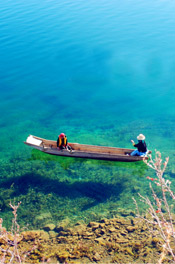
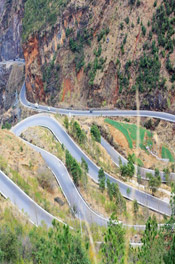
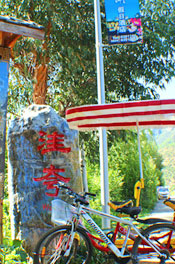
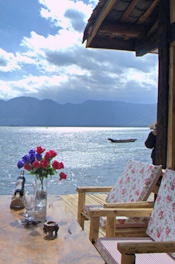
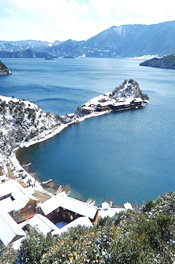
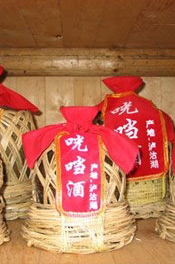
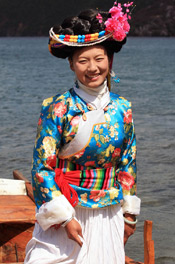
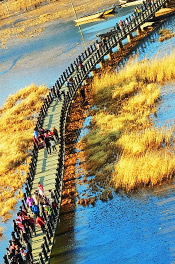
 BACK
BACK

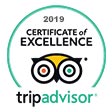 We, the 3rdpoletour, are the pioneer of in-depth Sichuan tour. We commit to offer you the most professionaltour service to facilitate your Sichuan travel.
We, the 3rdpoletour, are the pioneer of in-depth Sichuan tour. We commit to offer you the most professionaltour service to facilitate your Sichuan travel. 
